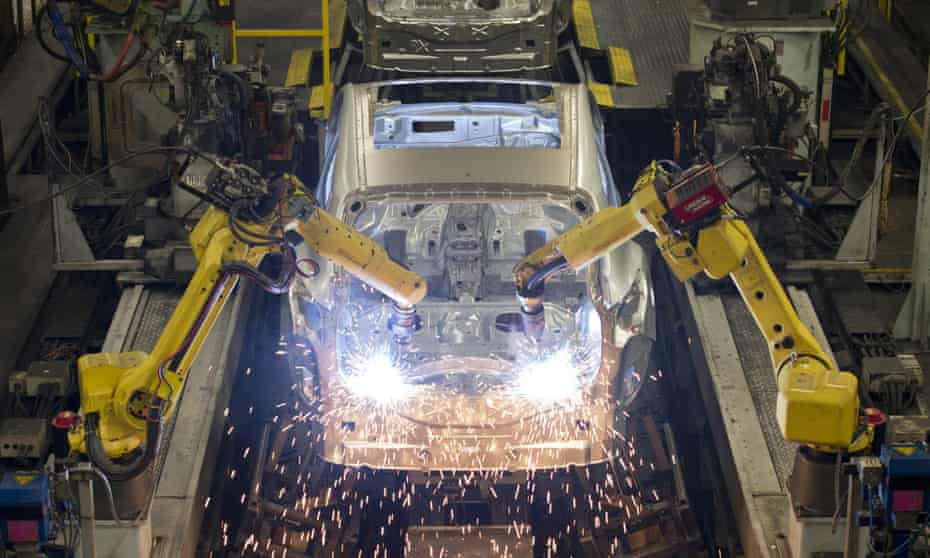UK car industry calls for government help on energy bills as Brexit costs rise
Manufacturers hit by energy cost rises of up to 50% as well as Covid lockdowns and chip shortages

The British car industry has called for help from the government with spiralling energy costs, with the prospect of further Brexit-related bills to hit the sector.
The rising price of energy, persistent shortages of computer chips, delays in parts caused by Covid lockdowns in vital supply markets such as China and Russia’s invasion of Ukraine have combined to affect manufacturers.
Energy cost increases of up to 50% this year will leave the UK car industry paying an extra £90m, according to an estimate by the Society of Motor Manufacturers and Traders (SMMT), a lobby group. It said energy prices for UK factories were 59% higher than the EU average before this year – a £50m annual disadvantage for the sector.
Carmakers do not count as an energy-intensive industry, so do not qualify for help from government under existing programmes, although battery production does qualify.
Mike Hawes, the SMMT chief executive, said: “Energy costs are hitting consumers, but they are also hitting manufacturers, and we have no price cap. Addressing the UK’s high energy costs is the industry’s number one ask.”
Matt Windle, the managing director of Lotus, the British sports car maker owned by China’s Geely, contrasted strong demand with supply chain difficulties. Both Windle and Lawrence Drake, the managing director of the lorry maker DAF Trucks, said they have been forced to hold daily meetings to keep track of which parts have been delayed.
“The trading conditions are as [bad] as I’ve ever known, and they’re getting worse as well,” Windle said. “We are seeing pressure across the board, particularly in the bill of materials.”
The SMMT warned the government against moves that would imperil the relative stability in the trading relationship with the EU, as it seeks to push through unilateral changes to the so-called Northern Ireland protocol, the post-Brexit rules governing trade between Great Britain and Northern Ireland.
“Brexit was undoubtedly a trauma and despite what a lot of people allege it is not yet done,” Hawes said. Businesses need “trust, not uncertainty” to trade, he added.
“Investors around the world will take note and potentially pause investment,” he said. “If there’s uncertainty, if there’s instability, it’s just another reason not to look at the UK.”
For the automotive sector there are still several post-Brexit regulatory regimes that need to be brought in, such as the process to gain safety approvals, but Hawes said that working groups involving government and industry that were meant to discuss those regulations had not met in the 18 months since the Brexit deal was agreed.